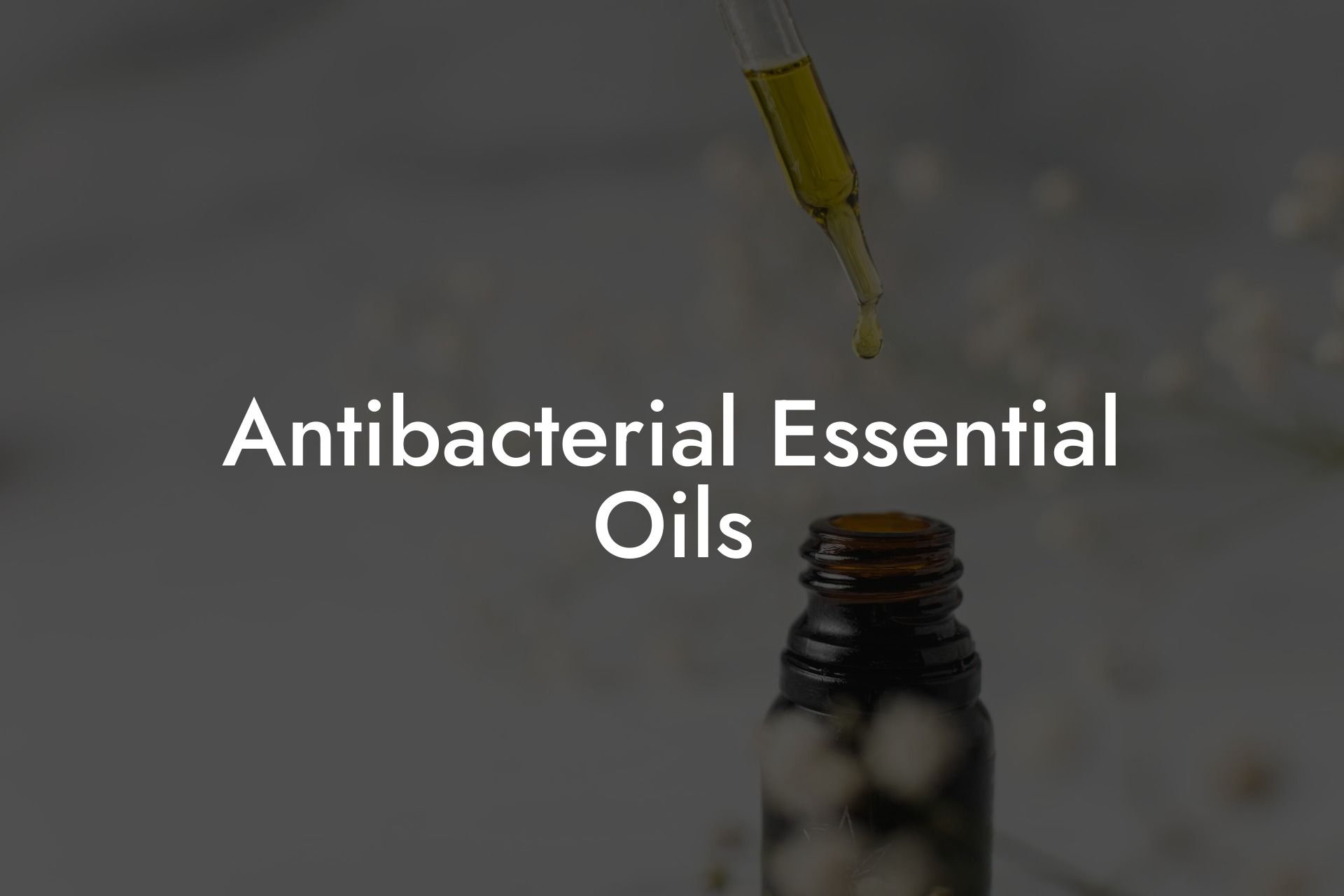Antibacterial essential oils are a natural and effective way to protect yourself and your home from harmful bacteria, viruses, and fungi. If you’re looking to harness the power of these potent oils, you’ve come to the right place! In this comprehensive guide, we will dive deep into the world of antibacterial essential oils, providing you with a wealth of information to help you make an informed decision for yourself and your family.
Table of Contents
What are Antibacterial Essential Oils?
Antibacterial essential oils are concentrated liquids derived from various parts of plants that have been found to possess antimicrobial properties, meaning they can help kill or slow the growth of bacteria, viruses, and fungi. They work by disrupting the cellular functions of these microorganisms, ultimately resulting in their destruction or inhibited growth.
Top Antibacterial Essential Oils
We’ve gathered a list of some of the top antibacterial essential oils that you can incorporate into your daily life to enhance overall wellbeing:
- Tea Tree Oil – Derived from the leaves of the Melaleuca alternifolia tree, tea tree oil is widely recognized for its powerful antibacterial properties. It has been found to be effective against common bacteria, such as E. coli and Staphylococcus aureus, as well as fungal infections like Candida. Tea tree oil can be used topically for acne, insect bites, and minor cuts and abrasions.
- Eucalyptus Oil – Extracted from the leaves of the eucalyptus tree, this oil boasts strong antiviral, antibacterial, and anti-inflammatory properties. Research has shown that eucalyptus oil can be effective against bacteria responsible for respiratory infections, such as H. influenzae and S. pneumoniae. It can be used in a diffuser to help ease congestion and improve air quality in your home.
- Lavender Oil – Known for its calming and soothing effects, lavender oil also possesses strong antibacterial properties. It has been found to be effective against common skin bacteria like Streptococcus and Staphylococcus, as well as the bacteria responsible for Lyme disease. Lavender oil can be used in a bath or diffused to promote relaxation and support a healthy immune system.
- Peppermint Oil – Extracted from the leaves of the Mentha piperita plant, peppermint oil has a long history of use for its antimicrobial and antiviral properties. Research has shown that it’s effective against several types of bacteria, including E. coli, Listeria, and Salmonella. Peppermint oil can be diffused to freshen up the air in your home or diluted and used topically for a cooling effect on sore muscles.
- Cinnamon Oil – This warm and spicy essential oil, derived from the bark of cinnamon trees, has potent antiviral, antibacterial, and antifungal powers. It has been shown to be particularly effective against various strains of the common cold and flu viruses. It can be diluted and applied topically or added to a diffuser to help purify the air in your home.
How to Use Antibacterial Essential Oils Safely
Before using any essential oil, it’s crucial to understand how to use them safely and effectively. Here are some tips to help you get started:
- Always dilute essential oils with a carrier oil before applying them to the skin. A general guideline is to mix 5-6 drops of essential oil with 30ml of a carrier oil, such as coconut, almond, or jojoba oil.
- If you’re using essential oils for the first time, be sure to perform a patch test on a small area of your skin to check for any adverse reactions.
- Keep essential oils out of reach of children and pets, as they can be toxic if ingested or absorbed through the skin in concentrated amounts.
- Do not use essential oils undiluted in your eyes, ears, nose, or other sensitive areas.
- When diffusing essential oils, ensure that your space is well-ventilated and avoid using them for prolonged periods.
- Consult a healthcare professional before using essential oils if you are pregnant, breastfeeding, or have a pre-existing medical condition.
Antibacterial Essential Oils Example:
Imagine you come down with a stubborn cold and have trouble with congestion and sinus pain. You decide to try eucalyptus and tea tree essential oils for their antibacterial properties and their ability to ease respiratory symptoms. You first dilute the oils in a carrier oil, then add them to a steamy bath to create a soothing and therapeutic experience. You simultaneously diffuse a blend of the oils in your bedroom, helping to purify the air and further promote easier breathing.
There you have it, a complete guide to antibacterial essential oils and their potential benefits for your health and home. By harnessing the power of these natural remedies, you can elevate your overall wellbeing while keeping harmful bacteria at bay. If you found this article helpful, we encourage you to share it with friends and family and to explore other essential oil guides here on Oshu Oils. Don’t forget to browse our range of high-quality essential oils to start implementing these powerful plant-based solutions into your everyday life.





















